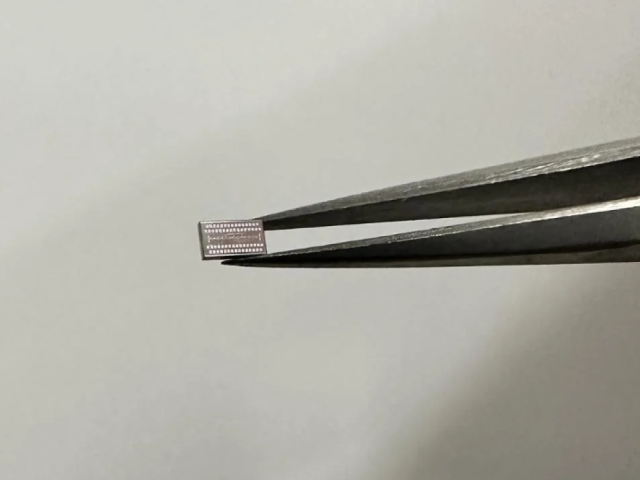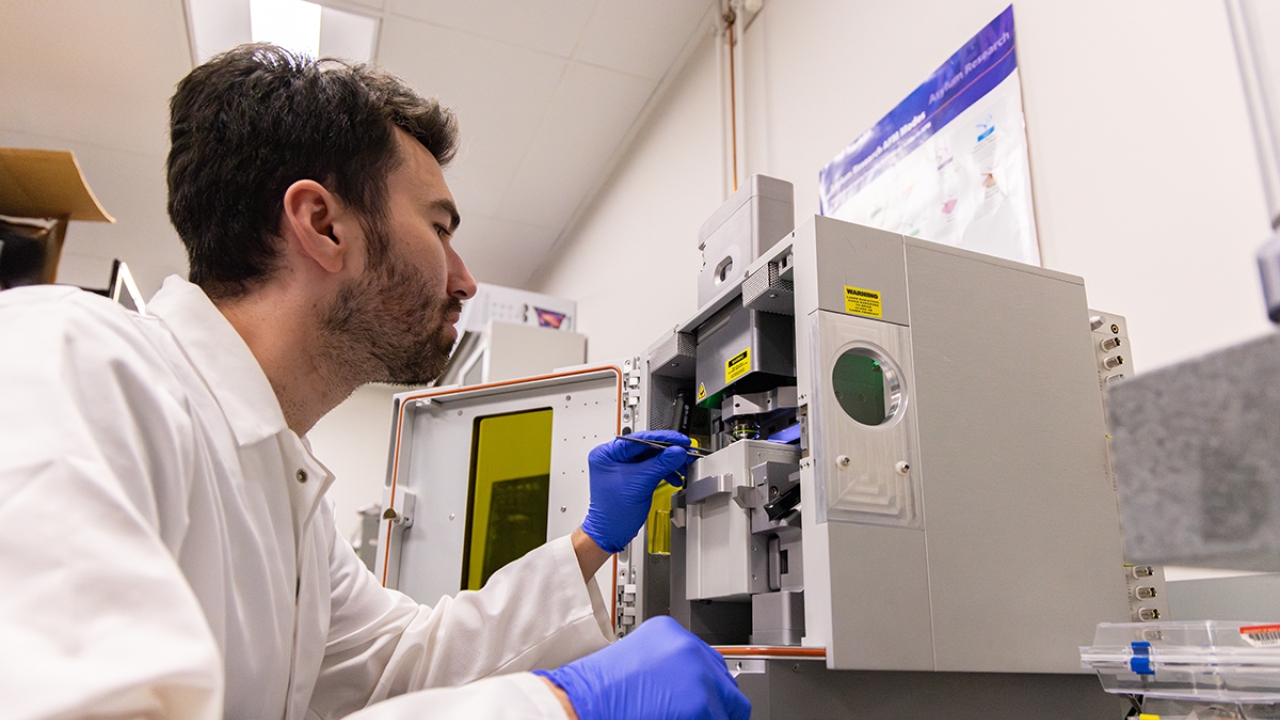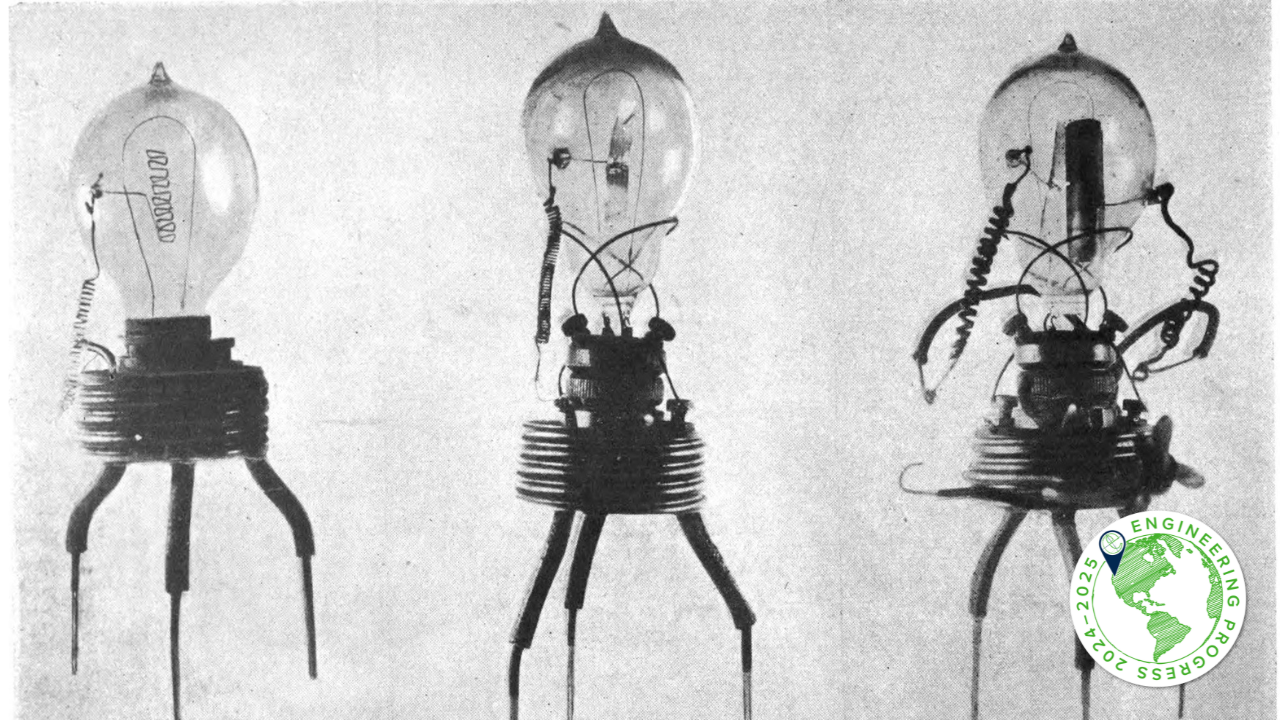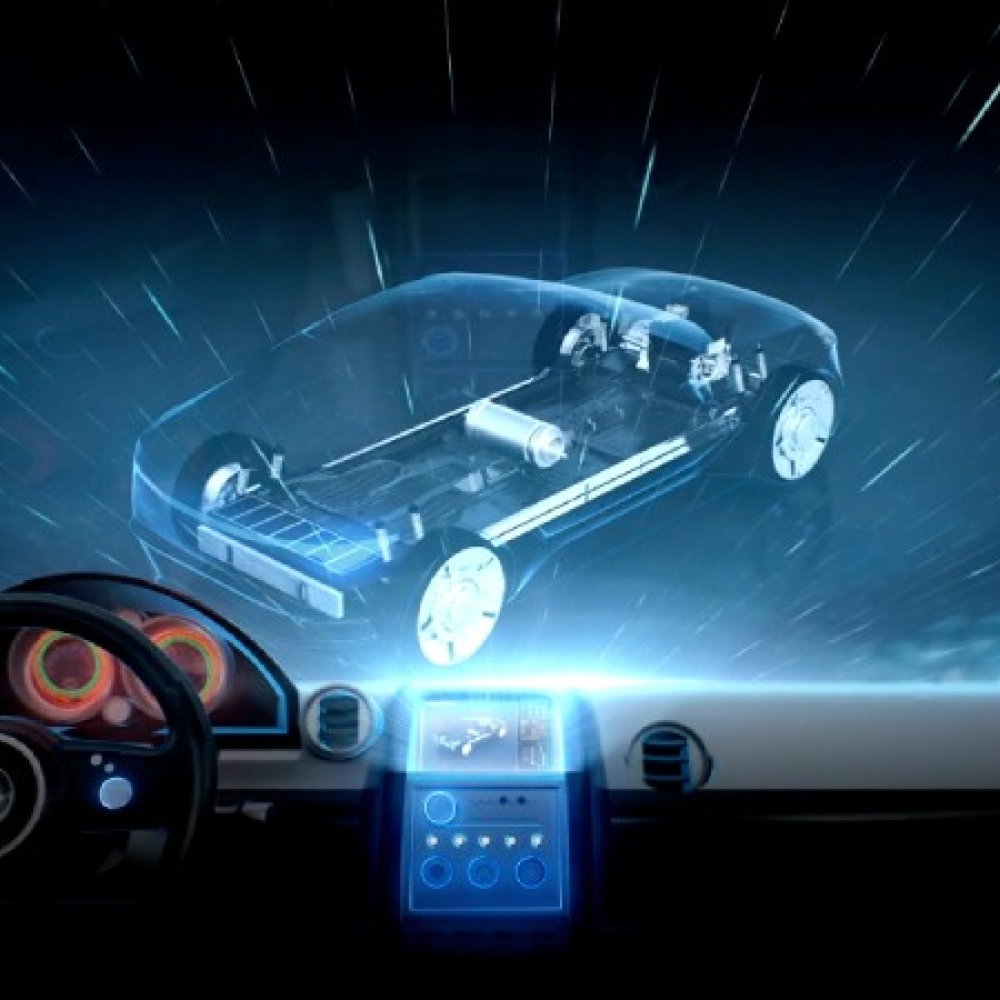We will develop and employ cutting-edge miniaturized technologies to facilitate the advancement of our strategic research.
Thinking big often means thinking small-scale. Our ability to control matter at the molecular interfaces of materials allows us to create unique tools that cross fundamental disciplines. Sensors and actuators made on the nano- and micro-scales can take measurements and create actions in medical devices, civil infrastructures and more. By studying and controlling interfacial phenomena, we can achieve new solutions in realms including energy storage, medical solutions and surgical tools.
'Impossible' Millimeter Wave Sensor Has Wide Potential
The new, UC Davis-developed sensor can detect vibrations a thousand times smaller and movement a hundred times smaller than a strand of human hair. It's also just a stepping stone to an even smaller, more powerful sensor.
Research in Action
Controlling the (Casimir) Force
Creating Nanoislands for Better Platinum Catalysts
Waves of the Future
Engineering a better world calls for solutions of a different caliber, demanding innovation across disciplines using a design-centric approach.
We employ and develop intelligent systems and automation, tools at the nano-and-micro- scales and engineering for all that will revolutionize energy systems, strengthen climate resilience, advance human health and transform mobility to bring a sustainable, healthier and more resilient world within reach.









